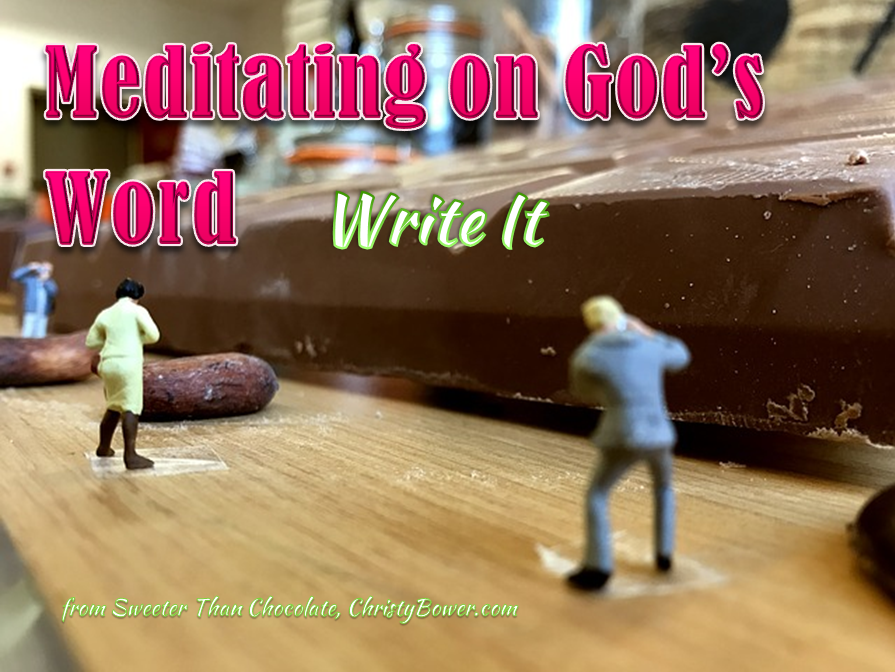Need more ideas? I’ve compiled a list of 48 below, but there is no limit. Apply your creative interests to the Word of God to come up with your own unique approaches to biblical meditation.
If you’re thinking it looks like a list of craft projects and creative ventures, you’re right. Working on a craft project gives our minds time to think about the Bible passage as we decide the best approach for expressing it in our own way.
Artistic methods also build in the time we need to meditate and it feels so much more natural than staring at a page of Scripture and trying to maintain our focus. It also engages the kinesthetic principles of maintaining our focus by coupling it with a physical activity.
Consider which of these methods appeal to you.
- Write a story.
- Write an essay.
- Draw a picture.
- Make a collage.
- Make a “ransom” note.
- Create a scrapbook page.
- Rubber stamp a Scripture card.
- Make a bookmark.
- Create a graphic design.
- Make a video.
- Sculpt with clay.
- Take photos that capture the essence of the passage.
- Tell the story from a different point of view.
- Write the story in the first person.
- Write the text in your own words.
- Write it as a prayer.
- Write a song.
- Design a book cover for the text.
- Write it like a newspaper story.
- Write a news headline for the text.
- Put the text in your art journal.
- Use mixed media to convey the idea.
- Express the emotion of the passage through sounds.
- Express the emotion of the passage through scents.
- Express the emotion of the passage through tastes.
- Express the emotion of the passage through visuals.
- Express the emotion of the passage through textures.
- Use needlecrafts to express the text.
- Do a physical act of obedience.
- Write a skit.
- Express the idea through dance.
- Write out the passage and color-code key words.
- Construct a diorama.
- Create a shadowbox display.
- Create the scene in miniatures.
- Build the scene in Legos.
- Make a crossword puzzle with clues from the text.
- Create a word search using key words.
- Write a poem.
- Write a verse as haiku.
- Cook a recipe that relates to the text.
- Create a costume or mask of a character.
- Record a dramatic reading of the text.
- Record a dramatic re-telling of the text.
- Make a poster.
- Design a banner.
- Draw a map of the place.
- Creatively write Scripture all over your driveway with sidewalk chalk.
This is an excerpt from Sweeter Than Chocolate: Developing a Healthy Addiction to God’s Word. Used by permission.



